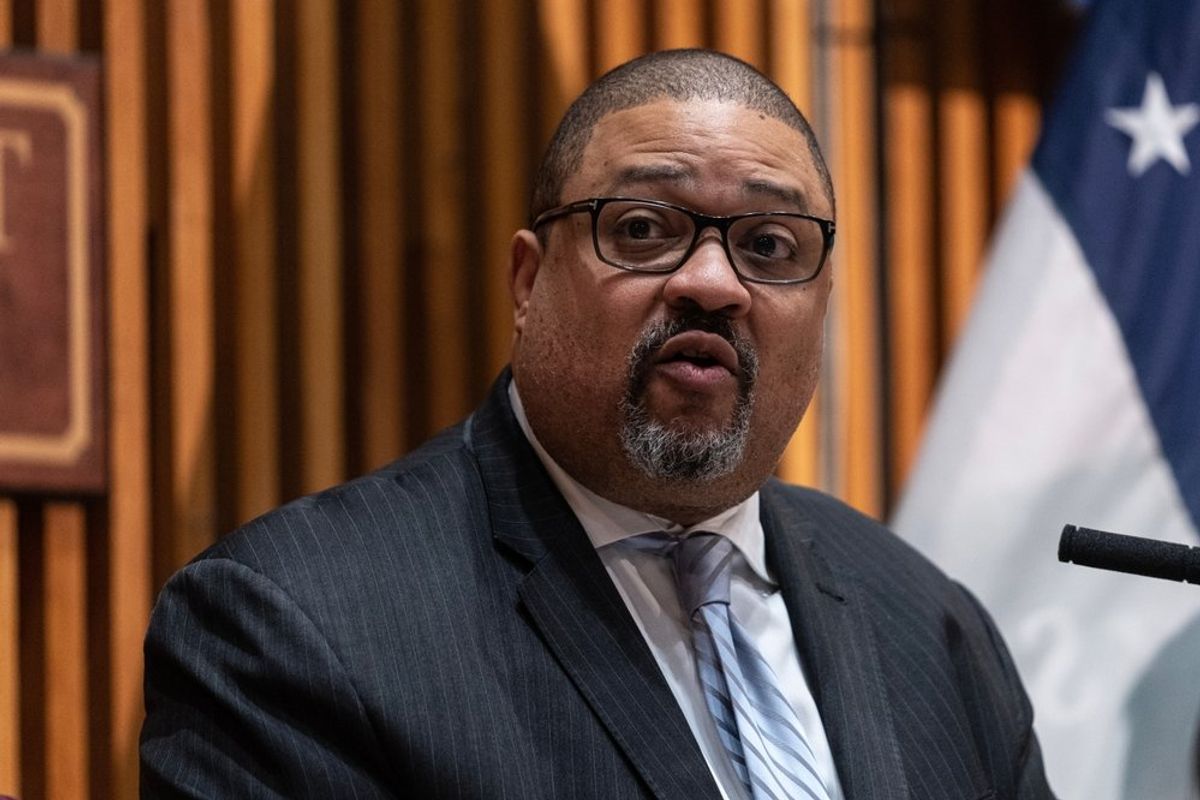'Extremely narrow': NY prosecutors say Trump’s felonies should stand despite immunity ruling

Manhattan District Attorney Alvin Bragg's office just submitted its official response to the Supreme Court of the United States' immunity decision from earlier this month, and argues that his 34 felony convictions should still apply.
In a 69-page filing, Bragg and his team of prosecutors painstakingly laid out how former President Donald Trump being granted broad criminal immunity for official acts by SCOTUS doesn't change his late May conviction by a New York jury. Bragg argued that the crimes Trump committed in the lead-up to the 2016 presidential election are not tied to any official acts he took as president, and that no evidence prosecutors introduced ran significantly afoul of SCOTUS' immunity boundaries laid out in the Trump v. United States decision.
Bragg referred to a practice known as "harmless-error analysis" in which a criminal conviction can still be upheld despite a "harmless error" by a judge overseeing a criminal trial if that error is not rooted in bias or not significant enough to merit a reversal — like the admission of evidence later found to be admitted erroneously. A harmless error is different than a reversible error, as a reversible error requires a conviction be overturned while a harmless error does not.
READ MORE: 'Not very difficult': Former federal prosecutor explains how Alvin Bragg can convict Trump
"Like New York's courts, the U.S. Supreme Court 'repeatedly has held' that 'errors such as mistaken admission of evidence' are not 'immune from harmless-error analysis,'" Bragg wrote. "And, as particularly relevant here, the Supreme Court has applied harmless-error review even when the improperly admitted evidence involved 'conduct that was not criminal when the defendant engaged in that conduct.'"
"If a reviewing court can determine whether it was harmless to introduce evidence of conduct for which a defendant could not have been prosecuted because it was not a crime, then the same must be true for evidence of conduct for which a defendant could not have been prosecuted because of immunity," he continued. "Under both New York and federal law, harmless-error analysis is unavailable for only extremely narrow categories of errors—none of which include the erroneous introduction of evidence."
It's unclear how Judge Juan Merchan will rule given that the evidence compiled by the grand jury that led to Trump's indictment is still under seal, according to Business Insider legal correspondent Jacob Shamsian. While he opined that the harmless-error analysis could "cinch" Bragg's case that the convictions should be upheld, the fact that the evidence has not been made public remains a wild card.
"[W]e can't evaluate whether it would have violated the Supreme Court's immunity ruling — based on the public record, at least," Shamsian tweeted.
READ MORE: 'There's going to be a criminal conviction': Ex-Trump attorney predicts guilty verdict in NY
Trump was initially going to be sentenced for his 34 felony convictions on July 11 after being found guilty on all counts in late May. After SCOTUS' 6-3 ruling in the former president's favor in Trump v. United States, Merchan pushed sentencing back to September 18 in order to allow for time to review how the immunity decision may impact the verdict.
At the core of the case was Trump's role in orchestrating hush money payments to multiple women who claimed to have had affairs with him (Trump has denied the affairs) in order to prevent them from sharing their stories with the media ahead of the 2016 election. Bragg argued in his indictment that the payments — which were illegally labeled as legal expenses to his then-attorney, Michael Cohen — constituted illegal campaign contributions, as they were done to advance his political goals.
When he took the witness stand, Cohen testified that he made the payments to adult film star Stormy Daniels and former Playboy model Karen McDougal, and that Trump reimbursed him for those payments by calling the reimbursement a legal retainer. Cohen maintained there was no legal retainer and that the reimbursements were for the hush money payments.
READ MORE: Donald Trump guilty on all counts in New York criminal trial
from Alternet.org https://ift.tt/cBvsaTz
via sinceretalk
Comments
Post a Comment